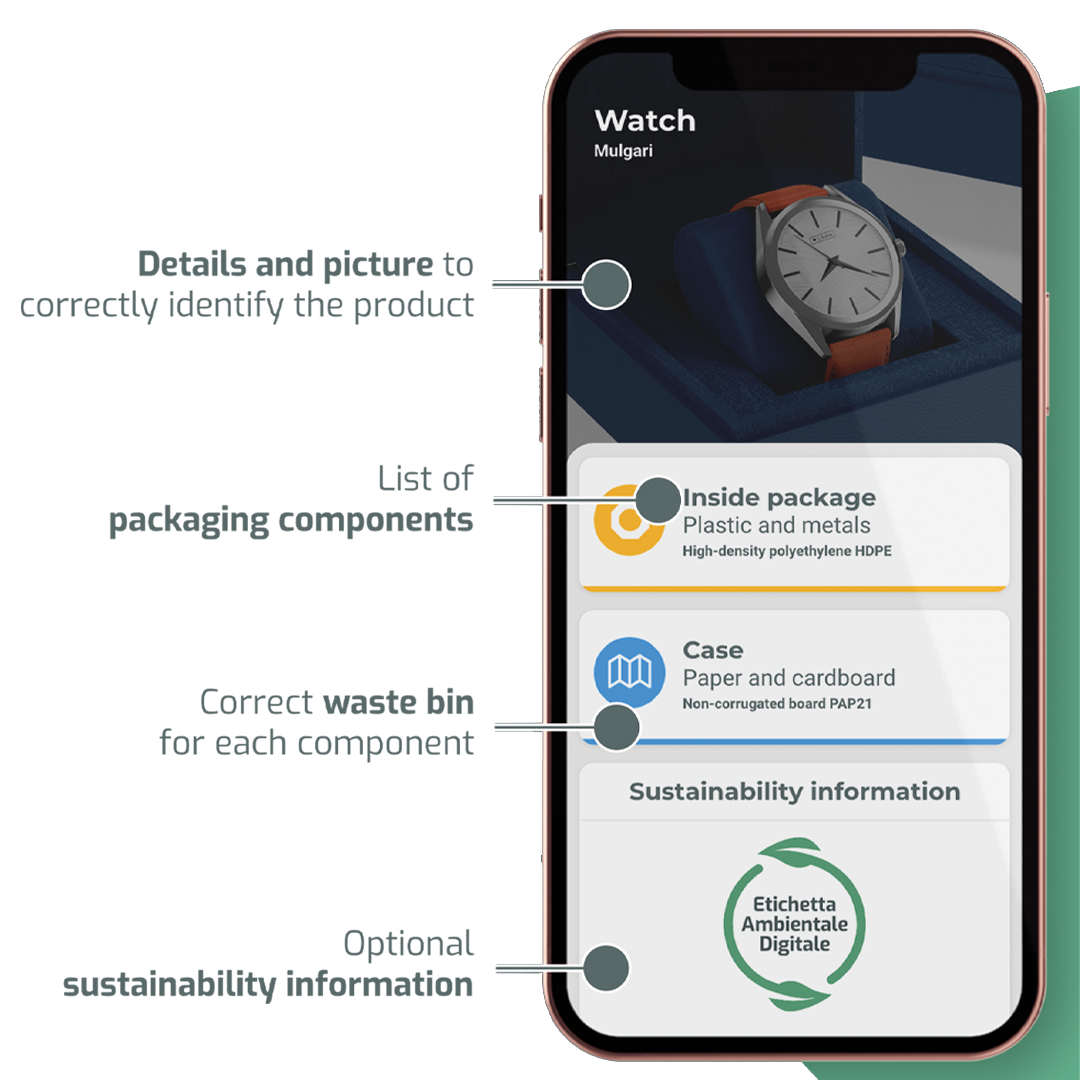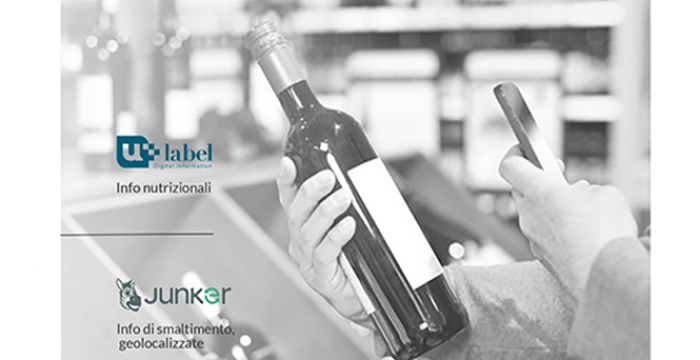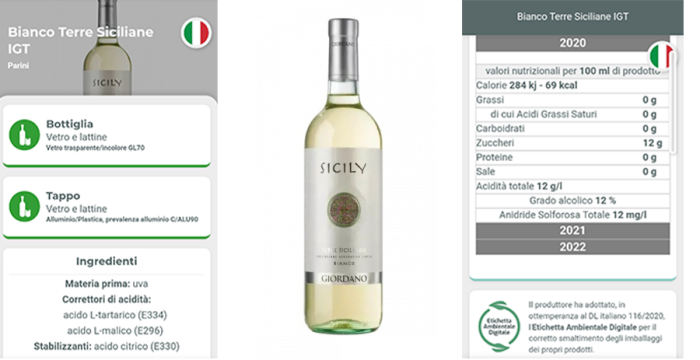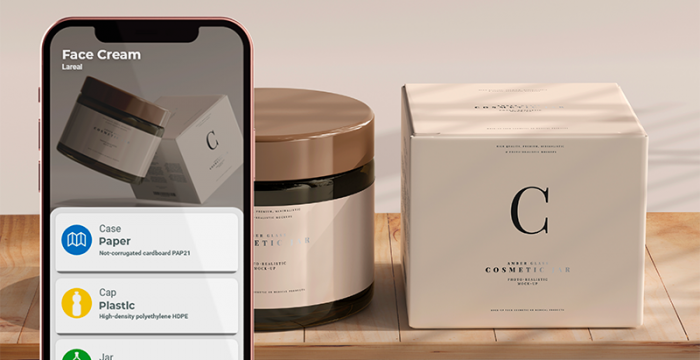
Pubblicato: 04/05/2022
Sustainable packaging, the future of labeling is digital.
All the environmental information can be beared in the Barcode or in a QR Code.
Imagine to be able to give all the environmental information of a product without impacting the aesthetic package design or facing costs of reprint each time you need an update.
It is all possible now thanks to a new solution for a Digital Environmental Label, developed by an Italian Sme, Giunko srl, which takes advantage of something already on the product’s label, namely the barcode, or, alternatively, of a small assigned Qr-Code.
This innovation was the first of its sort to be launched one year and a half ago, preempting the recent EU moves on circular transition and waste reduction.
Big news are expected by summer, starting from the forthcoming revision of the EU’s Packaging and Packaging Waste Directive, which should make all packaging placed on the EU market fully recyclable by 2030. In the same period, the European Commission is going to publish one of the most awaited and discussed proposals of the year, the Sustainable Products Initiative (SPI). This initiative, which will immediately come into effect, it’s a huge challenge to producers, but it’s the EU itself to suggest the path which leads to circular economy. That path goes through ecodesign and consumer empowerment, improving information on products.
“To drive consumers towards more sustainable choices - it’s written in the proposal - labels should (…) provide information allowing for the effective comparison of products”. To reach this goal, the EU also recommends to introduce on physical labels, where appropriate, “additional information by bearing specific references like website addresses, dynamic QR codes, links to online labels or any appropriate consumer-oriented means”.
It’s a green light to the use of enabling technology in this field and its first effect will be a turn to digital labeling in all European countries.
Six years ago, truly ahead of its time, an Italian start up (now a Sme, specialized in cloud-based solutions for the cleantech sector) called Giunko srl started to link barcodes to a unique database of information on waste sorting. This database became the “brain” of Junker app, an innovative platform for waste sorting and recycling, which now counts more than 2 million users in Italy, and, more recently, led to one of the most interesting best practice on digital labeling in Europe.
In fact, on October 2021, Giunko launched the first Digital Environmental Label (EAD): a complete and always up-to-date solution, which allows to bear all the disposal information in something which is already on the product’s label, namely the barcode.
Simply taking the smartphone and scanning the barcode through Junker app, consumers can immediately find out more about the sustainability of the products they are buying and discover how to dispose of it properly.
Each product sheet includes: the packaging’s components and the materials they are made of, including nationally recognized abbreviations and acronyms for materials; geolocated disposal information to sort waste correctly, according to territorial rules for the municipality; additional sustainability information given by the client.
There are several options to get EAD: simply by scanning the product’s barcode with Junker app; using an assigned QR-code or embedding all the information within the client’s website.
Several companies of different sectors - mainly wine, tobacco, cosmetics and luxury - have already chosen the Digital Environmental Label by Junker app. As a matter of fact, informing citizens about the final destination of the packaging and the materials they are made of is not an option anymore.
It has become an obligation, established by the European Union back in 2018.
In Italy environmental labelling will become mandatory from the January 1st.
“We’ve been pioneers on this field – says Noemi De Santis, CMO for Giunko srl – and now, thanks to our experience, we’re able to offer to producers, suppliers and importers an all inclusive solution to go well beyond the law requirements and effortlessly undertake the path toward innovation and sustainability which EU is encouraging. In fact, our Digital Environmental Label gives a lot more information than a traditional label, but at the same time is always up-to-date and highly assistive. We don’t just offer to our clients the most developed and reliable waste sorting platform, but we also help them to provide verified contents about the sustainability and recyclability of their products”.
Last but not least, the digital label by Junker app is also accessible for blind and visually impaired people and is available in 10 languages. That’s the reason why so many international companies are implementing this innovation.
Among them, there is Bolsius, European leader in the field of scented candles.
“For Bolsius Italy – a company spokesperson states – EAD by Junker app represents a unique and remarkable simplification of the process to be compliant with the new environmental norms. Many of our products are quite small and have a multilingual packaging. Such characteristics can be an obstacle to the adaption of the label to the new law requirements: a digital label is, for us, the perfect solution. With a single, small environmental label, which is the same for all products, we can convey all disposal information to the consumers. So easy, so valuable!”.




